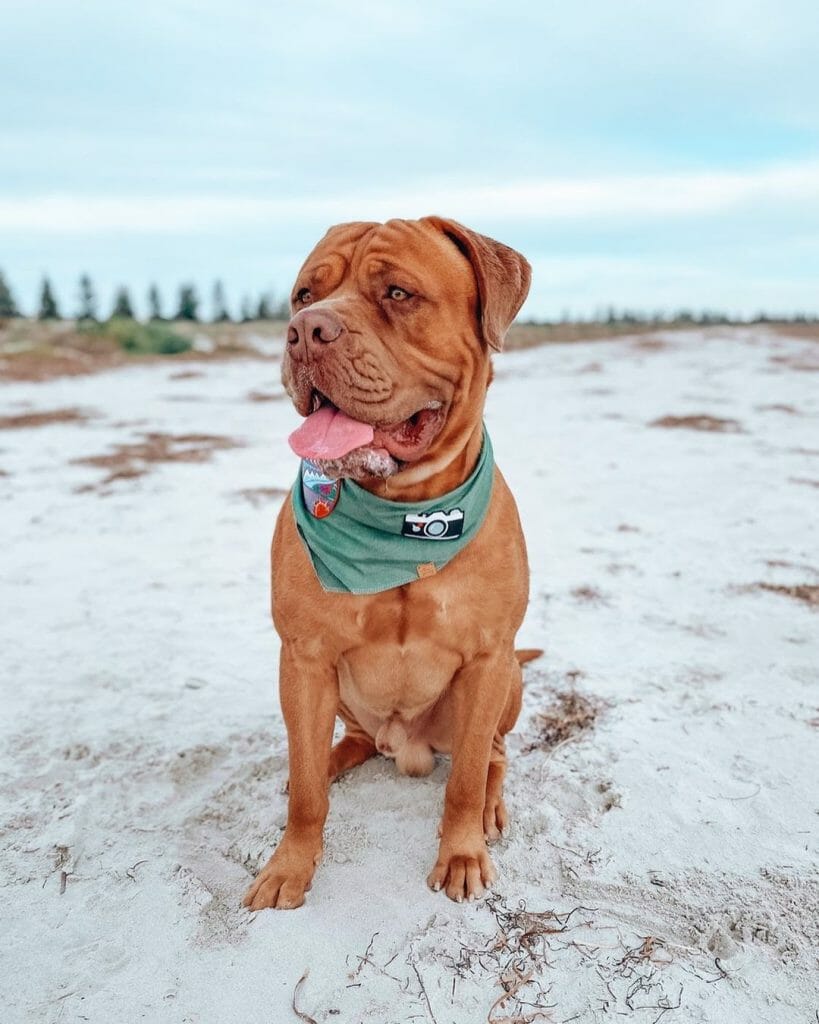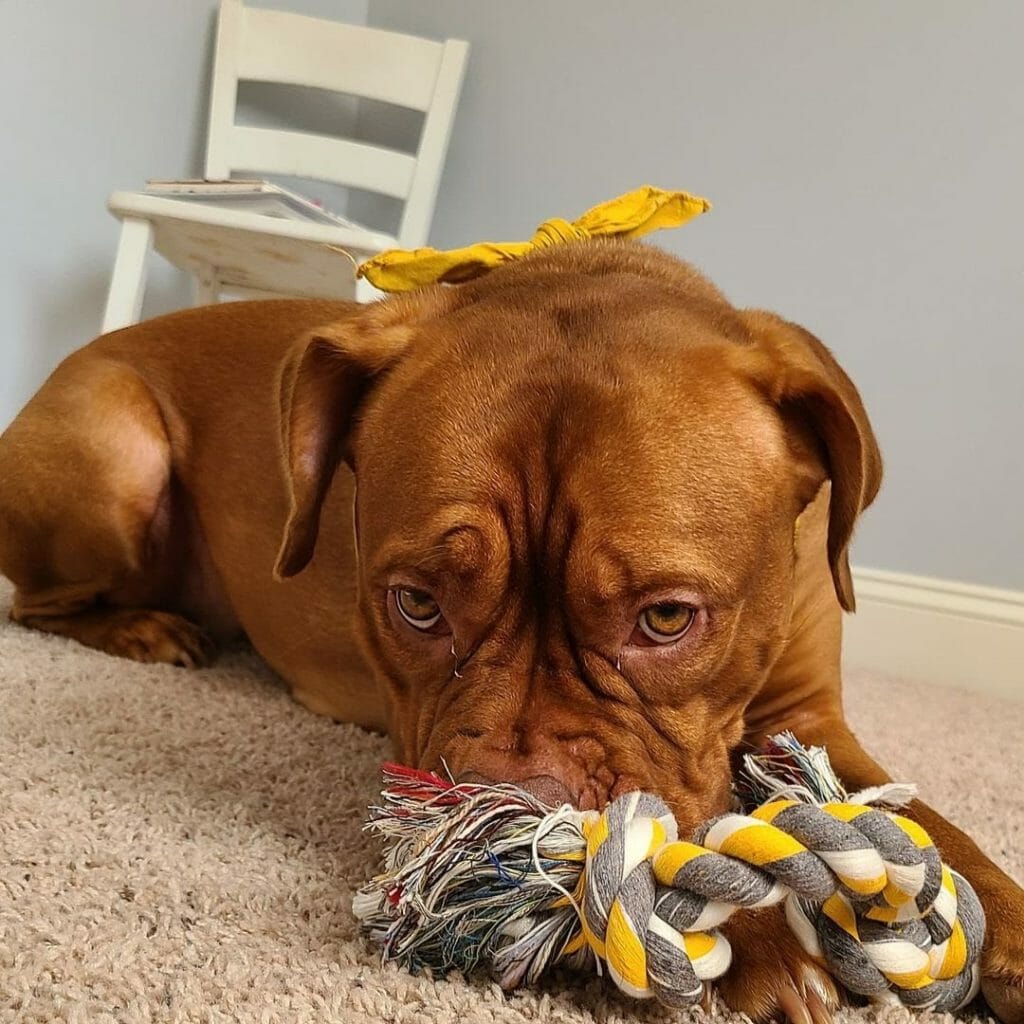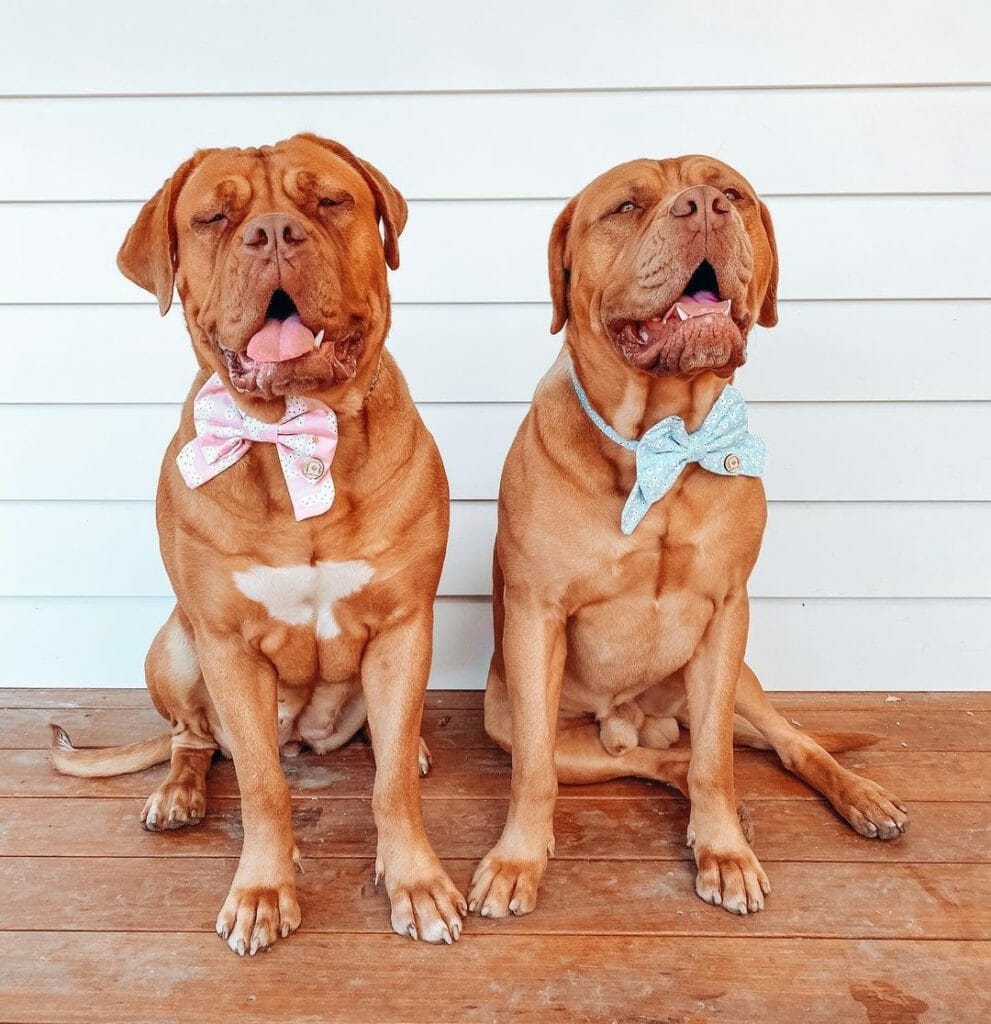Why Is My Dogue de Bordeaux Underweight? 6 Reasons Behind His Unhealthy Mass
For the Dogue de Bordeaux breed, living a healthy and active lifestyle is important so he gets to enjoy a long lifespan. How much he eats and the amount of exercise he gets daily are two major areas owners should never ignore or compromise. After all, he’s highly prone to obesity. But what if he suffers from the opposite?
It’s highly possible for the Dogue de Bordeaux to end up becoming underweight due to several reasons which may include that he’s a picky eater, he’s recovering from an injury or illness, or he’s simply underfed. A plethora of other factors can explain why this can be a case for the canine which we usually know as stocky, muscular, and athletic.


If your dog is currently underweight, we’ll help you understand his situation as well as provide remedies so he can get back on his right mass. Read more below…
Table of Contents
6 Reasons Why a Dogue de Bordeaux Is Underweight


Dogue de Bordeaux owners must be well-informed of the background of their puppy. It could be that the dog they got came from an unkempt environment with unhealthy lifestyles, hence the insufficient body mass. However, if you are doing all the right things such as feeding him nutritious meals in adequate amounts and still, the Dogue is consistently losing weight, there might be other reasons that would require your attention.
These reasons are the following:
He’s Underfed
When we feed our dogs, the number one common mistake we commit is not knowing how many cups should be provided daily for the canine. It could be that you have owned a Dogue before and you followed the same guidelines in feeding for the new puppy without considering his metabolism rate, activity level, health, gender, and more.
Consult your vet and have your Dogue assessed so you can avoid underfeeding your buddy. Moreover, be sure you don’t forget to give all his required meals for the day. If he is a puppy, at least 3 to 4 meals must be served while adults do well with just 2.
Insufficient Nutrients
There’s always a reason why it’s necessary to choose an age and size-appropriate dog food for our pets. A Dogue de Bordeaux is a large French Mastiff whose nutritional needs highly differ from that of a small breed. During the breed’s early years, loads of vitamins and nutrients are needed by his body for the development and normal growth. As he transitions into a mature dog, adult canine food is required for him.
Failing to complement his size and age with the right meals may lead to an unhealthy weight.
Parasites
Common to dogs of any breed, parasites can infect the gastrointestinal organs of the pooch and prohibit its body from absorbing all the nutrients from the meal consumed. A Dogue who is infested with tapeworms, hookworms, or roundworms is expected to lose weight and hardly gain some. A common sign that tells he has parasites is if he experiences bloating.
Illness
Several medical conditions like cancer, metabolic disorders, and hyperthyroidism can instantly cause a Dogue de Bordeaux’s body mass to shrink dramatically. When they are left untreated and they get worse, the dog will have a harder time putting weight on.
Oral Problems
Does your Dogue exhibit no signs of medical conditions, yet he’s still not eating? It could be that the simple process of biting or chewing food became a hard task for him due to poor oral health. Usually, inflamed gums or abscessed teeth are the culprits as to why he no longer has the appetite to eat his favorite food.
Medication
Dogue de Bordeauxs who take maintenance drugs may unexpectedly lose weight. Some vet-prescribed medicines have certain side effects that may include weight loss. If such is the case for your beloved Dogue, talk to your vet and see if there are other options or a possibility to change prescriptions.
How to Check Your Dogue de Bordeaux’s Weight
Studies show that dogs who maintain a healthy weight along with the right regulated diet provided in regular schedules can live 2 years longer. With this being said, this shows us a clear advantage concerning the importance of keeping your dog in shape, but how do you know if your Dogue de Bordeaux is on the right weight? Let’s find out below:
Analyzing His Profile
As a general rule, a Dogue de Bordeaux or any other breed of canine must have an abdomen that is higher than his rib cage. That means, from the side view, the body part on the front legs inclines up to the rear. If this looks sharp, then your Dogue might be underweight. However, if the abdomen is almost level to his rib cage, then your buddy needs to lose a few pounds.
To have a clearer guide, Purina has set an image that would best represent each weight condition of the dog:


Undergo Rib Examination
Another way to identify whether your Dogue has a healthy weight or not is through rib examination. Simply place your thumbs on the spine and spread your fingers across his rib cage. If you can’t feel anything, he’s too fat. A healthy Dogue, however, has ribs that can be felt just right after you place your hand in his body.
On the other hand, too visible ribs indicate that he’s below the weighing scale.
Do the Overhead Inspection
Look at your Dogue’s body just by standing in front of him and looking down. With healthy body weight, he must have an “hourglass figure” and not seem chunky nor overly thin, especially on the rear with his rib cage showing through the skin and coat.
5 Ways to Fatten Up a Dogue de Bordeaux


Knowing the real reason behind the unhealthy weight loss of a Dogue de Bordeaux is always the first step. The moment you have affirmed that your speculations are right, you can start executing the advice given by your vet. Usually, below are the 5 ways that you can consider to fatten up your dog companion:
- Let Him Get Hungry. It might be that the dog is full and is not ready for another meal yet!
- Keep Him Healthy. Ensure he’s not in pain or discomfort for a stress-free eating period.
- Reduce Stress. Assure your Dogue that everything’s alright and try to minimize the stressors that surround him.
- Make Yummy Meals. Check whether he’s more into dry food, wet food, or raw diets!
- Assist in Feeding. Encourage your Dogue to eat or hand-feed him when necessary.
Best Dog Foods for a Successful Weight Gain
Is your dog’s appetite back? Make sure that this time, you feed him high-quality dog food to support his weight gain journey. Consider below some of the best dog food brands that have helped a plethora of canines in staying fit and healthy and don’t forget to consult your vet regarding your picks!
